Share
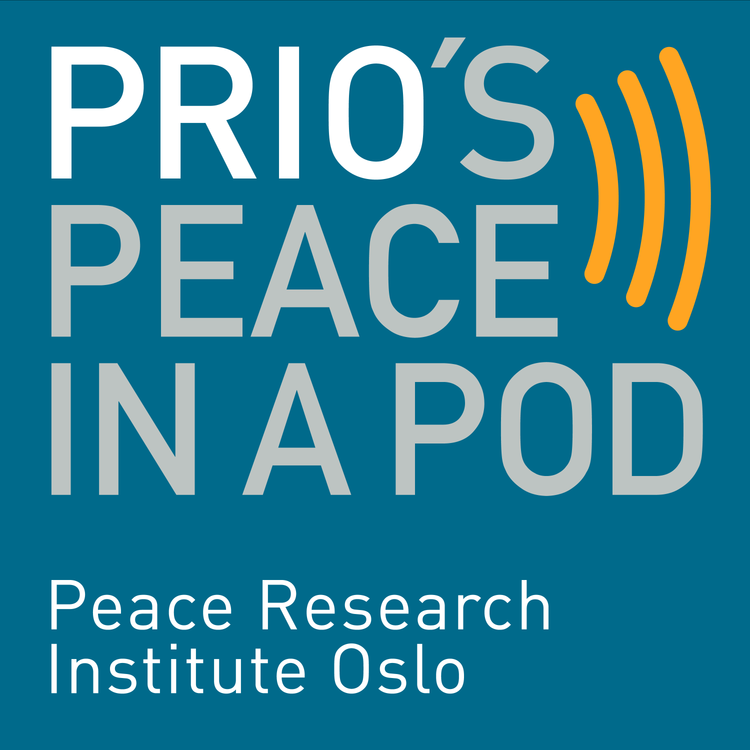
PRIO's Peace in a Pod
30- The Human Choices of Artificial Intelligence at War
•
When we imagine artificial intelligence (AI) in warfare, we might think of films like Blade Runner and its replicants, or Terminator’s Skynet. But in reality, some artificial intelligence usage is already occurring, and contrary to the films, we should be more concerned about the humans involved. The "Warring with Machines” project at PRIO focuses on the people who serve in combat settings with AI-enabled machines. The project aims to yield moral guidelines for AI technology use in three settings: kinetic (physical) combat operations, cyber operations, and strategic planning.
Project leader Gregory Reichberg and project member Shannon French talk about the past, present, and future of AI in this episode.
More episodes
View all episodes
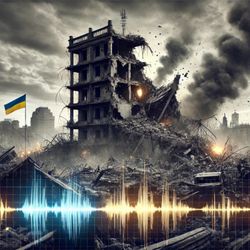
7. Could a Breakthrough Technology Transform the War in Ukraine?
37:14||Season 2, Ep. 7Negotiations around a ceasefire in Ukraine have dominated headlines ever since Donald Trump returned to the White House. From bilateral talks in Saudi Arabia to direct talks between Trump and Vladimir Putin, discussions are intensifying over what a potential ceasefire could look like.But on the ground, the fighting continues. Ukraine’s energy infrastructure remains under attack, and civilians are still caught in the crossfire.Now, a breakthrough technology developed by the Peace Research Institute Oslo (PRIO) and NORSAR—using seismic and acoustic detection to automatically identify events—could transform how war crimes are documented and how ceasefires are monitored.Joining this episode are Sebastian Schutte, a Research Professor who leads the project at PRIO, and Oleksandra Matviichuk, head of the Center for Civil Liberties in Kyiv, who works tirelessly to document war crimes committed by Russian forces.PRIO’s Peace in a Pod is hosted by Arnaud Siad.Image: ChatGPT (DALL·E) / OpenAI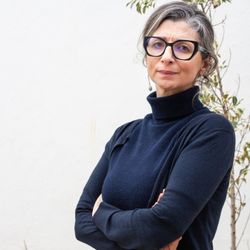
6. UN Special Rapporteur Francesca Albanese on Gaza, Trump, and Genocide
46:49||Season 2, Ep. 6President Donald Trump’s call for the U.S. to take control of Gaza and displace its population marks a stark break from decades of American policy—one that could destabilize the entire Middle East.This comes at a critical moment, as the fragile Israel-Hamas ceasefire hangs in the balance and families await the return of hostages from Gaza. For Palestinians, the threat of another forced displacement is not only terrifying but a clear violation of international law.So what happens next? And what are the broader consequences for the region?In this episode, UN Special Rapporteur Francesca Albanese and PRIO Senior Researcher Jørgen Jensehaugen break down the stakes, the legal implications, and the realities on the ground.PRIO’s Peace in a Pod is hosted by Arnaud Siad.Photo: Chedly Ben Ibrahim/NurPhoto via Getty Images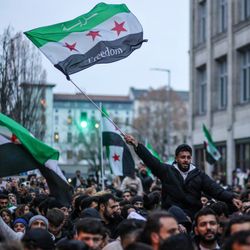
5. What’s Next for Syrian Refugees After Assad’s Fall?
47:41||Season 2, Ep. 5December 8th. Syrian President Bashar al-Assad is reported to have fled the country his family ruled for 50 years—a political earthquake that sends shockwaves across the globe.Miles away in Europe, thousands of Syrians in the diaspora gather spontaneously to mark this historic moment. Governments react swiftly—many freezing asylum claims, while some begin drafting plans for the return of refugees.In this two-part episode, we first hear from Alaa Same, a Syrian refugee now settled in Norway. He shares his extraordinary story of escaping Syria, finding his way to Oslo, and the moment he learned that the dictator who had ruled his country for decades was finally gone.Then, we turn to two leading experts on migration and refugees: Marta Bivand Erdal, Research Professor at PRIO, and Pål Nesse, Senior Adviser to the Norwegian Refugee Council.PRIO's Peace in a Pod is hosted by award-winning journalist Arnaud Siad.Photo: Getty Images/Omer Messinger
4. From Biden to Trump: Ukraine’s War at a Turning Point
24:23||Season 2, Ep. 4The stakes are rising in Ukraine as Russian attacks on critical infrastructure intensify, plunging the country into darkness with rolling blackouts.Meanwhile, the Biden administration makes its final push to arm Kyiv before leaving office, and President-elect Donald Trump signals a potential shift in U.S. policy, raising critical questions about the future of the conflict.In this episode of PRIO’s Peace in a Pod, host Arnaud Siad is joined by Kristian Berg Harpviken, research professor at PRIO and the future Head of the Norwegian Nobel Institute, and Dr. Sabine Fischer, a Russia expert at the German Institute for International and Security Affairs, to discuss Ukraine’s war at this pivotal moment and what lies ahead.Picture: Getty Images.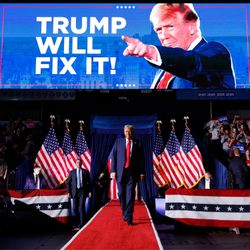
3. Will Trump 2.0 Break US Democracy?
34:12||Season 2, Ep. 3Donald Trump’s return to the White House raises urgent questions about the state of American democracy.His contentious victory—despite ongoing legal battles and investigations into his role in efforts to overturn the 2020 election—marks one of the most polarizing comebacks in U.S. political history.What does Trump’s presidency mean for the future of American democracy, civil resistance, and global governance?In this episode, Harvard professor Erica Chenoweth, who delivered PRIO’s Annual Peace Address, joins PRIO Research Professor Scott Gates and Research Director Marianne Dahl to unpack the implications of this historic moment.PRIO's Peace in a Pod is hosted by Arnaud Siad.Photo credit: Getty Images/Chip Somodevilla
2. Who Should Win the Nobel Peace Prize 2024?
41:46||Season 2, Ep. 2The Nobel Peace Prize is one of the world’s most prestigious honors. Each year, the Director of the Peace Research Institute Oslo (PRIO) presents his own independent list of individuals and organizations he believes are deserving of the Prize.This list, separate from the official selection by the Norwegian Nobel Committee, highlights those who have worked tirelessly for peace and merit special recognition.In this episode, PRIO Director Henrik Urdal discusses the people and organizations who made it onto his list this year. He is joined by Berit Reiss-Andersen, Special Adviser to the Norwegian Red Cross and former member of the Norwegian Nobel Committee, where she served for over a decade. Also featured is Maria Ressa, the 2021 Nobel Peace Prize laureate, honored for her courageous work alongside Russian journalist Dmitry Muratov in defending freedom of expression.PRIO's Peace in a Pod is hosted by Arnaud Siad.Photo credit: © Nobel Prize Outreach. Photo: Geir Anders Rybakken Ørslien
1. The West vs. 'The Rest'
28:45||Season 2, Ep. 1On April 29th at the World Economic Forum, Norway’s Foreign Minister, Espen Barth Eide, delivered a striking critique of the so-called “West,” accusing his allies of a double standard in their handling of the conflicts in Ukraine and Gaza. His remarks echoed growing criticism from the Global South, and highlighted the risk of eroding multilateral institutions and international law. But is there truly a double standard? And what new global alliances could emerge as the United Nations struggles with paralysis? In this episode, Stein Tønnesson, Research Professor Emeritus and former Director of PRIO, and Gérard Araud, former French Ambassador to the UN and the United States, explore what “the West” means today and how global governance might evolve in the future.This episode is hosted by Arnaud Siad.
The Most Violent Year Since World War II
22:01||Season 1More armed conflicts took place in 2023 than in any other year since the end of World War II. That is the shocking finding in this year’s Conflict Trends Report – a yearly paper by the Peace Research Institute Oslo, using data from the Uppsala Conflict Data Program and examining global conflict trends since 1946. In total, 59 armed conflicts raged around the world last year. So is our world becoming more violent? What were the most violent conflicts in 2023? And are these figures a coincidence of overlapping conflicts, some extraordinarily lethal, from artillery warfare in Ukraine to the razing of Gaza? Siri Aas Rustad is a Research Director at PRIO and the author of the Conflict Trends Report. In this episode, she is joined by Richard Gowan, the United Nations Director for the International Crisis Group, and an Associate Senior Policy Fellow at the European Council on Foreign Relations. PRIO's Peace in a Pod is hosted by award-winning journalist Arnaud Siad.
Norway: Peacemaker, Arms-Dealer
24:02||Season 1For decades, Norway has played a major role as a peacemaker. From the Nobel Peace Prize to the Oslo Accords, promoting peace has been a central aspect of Norwegian foreign policy.But this is only part of the story. Few outside the country are aware of the thriving, lucrative, and government-owned weapons industry in this Scandinavian nation.This creates a dilemma for Norway, as it walks a tightrope between economic interests and its commitments to international law.In this episode, Nic Marsh, a Senior Researcher at PRIO and a specialist in arms trade, discusses the scope and significance of Norway's weapons industry and arms trade. He is joined by General Kristin Lund, a retired senior officer of the Norwegian Army and the first woman to command a UN peacekeeping operation.The episode is hosted by award-winning journalist Arnaud Siad.